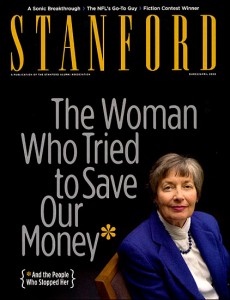 The two words are synonymous with any election today. It matters little if it’s municipal, provincial or federal elections. The environment is a political issue to be exploited by all politicians. If it’s a matter of votes most politicians are prepared to sell their mother or cut a tree down if it means getting elected. You never know, that one extra vote could make a difference. A politician’s position on the environment usually depends on which way the political winds are blowing, and for their sake they hope the air is not polluted.
The two words are synonymous with any election today. It matters little if it’s municipal, provincial or federal elections. The environment is a political issue to be exploited by all politicians. If it’s a matter of votes most politicians are prepared to sell their mother or cut a tree down if it means getting elected. You never know, that one extra vote could make a difference. A politician’s position on the environment usually depends on which way the political winds are blowing, and for their sake they hope the air is not polluted.
Personally, my views regarding the environment have changed over the years. There’s was a time when environmental issues took up about a nanosecond of my conscious thought. That changed when I moved to British Columbia. I was struck by the bond between the populace of BC and their environment. At first I thought they were all crazy because in BC, Mother Nature was not to be disparaged, disrespected or disregarded, in any manner. Their affection for their environmental surrounding is genuine. Experiencing this first hand, and for the first time, I was forced to re-think my position on the environment. To be clear, I didn’t become an environmental extremist, that job is far better suited for the likes of Al Gore and David Suzuki. My thoughts on the environment are not grandiose but rather grass roots. I now understand why people in BC love their province. As long as it’s not raining they can indulge in eye candy by simply by looking outdoors. So when I lived in Vancouver I became more circumspect as it relates to the environment. My time, and specifically my friends in in BC, taught me to respect the environment. Not by preaching (okay maybe just a little bit) but by their actions.
Today I scoff at politicians and activists who think our primary mode of transportation should be bicycles. Look people, cars are not going away. I dismiss those who would suggest that we should sacrifice our standard of living; at the same time provide an economic advantage for emerging economies, by imposing carbon credits. I believe the Tories were correct to dismiss the Kyoto Protocol, and insist that if Canada is to sign on to an international agreement it has to be fair and just for all countries. I also believe we should focus on our own backyard before we tackle saving the planet. I don’t understand why I have to look for trash containers in downtown Toronto. How about adding flower pots and some flowers in the core? I could be wrong but I suspect if something looks nice people are more likely to respect their surroundings. Why aren’t fines increased to $5,000 or 500 hours of community work for anyone throwing trash out of the car window at a highway exit? Who does that? Whoever they are, they should pay. These are fundamental and foundational approaches. The talk of windmills, electric cars and alternative energy sources is nothing more than an intellectual exercise if fundamental approaches are not established and accepted.
That being said if big solutions are available, and reasonable, the government has a responsibility to support such initiatives. I came across the story on the CBC that I thought you might find interesting. The story is about electric cars, and our government’s lack of support for the manufactures of these cars. These companies are not asking the government for subsidies but rather regulatory approval. I couldn’t help but ask myself, why is this happening? Is the government trying to protect the interests of one province which has an abundance of oil and natural gas? Maybe that’s too cynical but it’s apparent that politics and the environment go together like oil and water…or a chain-saw and a tree if you will.
Read More Add a Comment“Apple products for me were always about “fun” but now it’s crossing over into my business world.”
 I’ve noticed over the last couple of years how technology has changed my leisure activities. There was a time that I would get up on Saturday and Sunday morning, head out to buy some strong coffee and buy a number of newspapers. My body clock wakes me up at 6:00 am, even on weekends, so if I want to sleep in a bit I have to read. The fact of the matter is I rarely go back to sleep because the caffeine usually takes effect by the time I get through two or three newspapers. Once I’m done with the newspapers I have a big decision to make. Do I add it to the pile of old newspapers or actually take the pile to recycling bin? I just realized over this past weekend I haven’t had to make that excruciatingly difficult decision in some time now. I can’t remember the last time I bought a newspaper.
I’ve noticed over the last couple of years how technology has changed my leisure activities. There was a time that I would get up on Saturday and Sunday morning, head out to buy some strong coffee and buy a number of newspapers. My body clock wakes me up at 6:00 am, even on weekends, so if I want to sleep in a bit I have to read. The fact of the matter is I rarely go back to sleep because the caffeine usually takes effect by the time I get through two or three newspapers. Once I’m done with the newspapers I have a big decision to make. Do I add it to the pile of old newspapers or actually take the pile to recycling bin? I just realized over this past weekend I haven’t had to make that excruciatingly difficult decision in some time now. I can’t remember the last time I bought a newspaper.
My reading habits have changed because of the iPad. Most Apple users are zealots when it comes to their technology. I wouldn’t categorize myself as such but my iPad usage has changed my information purchasing habits. Realistic or not – I want my information for free. Why? It has nothing to do with price. It’s about easy access and availability. Why settle for two or three newspapers on the weekend when my fingertips can get me access to major newspapers around the world? Some newspapers are trying to hold out, The New York Times and The New York Post, by charging an on-line subscription fee. I just won’t do it because I can get my fix for free. It’s not just newspapers. I can’t remember the last time I went to a music store to buy a CD. I’m sure if I gave it some more thought I would come up with other examples how an Apple product has changed other leisure activities for me. But there’s a far more profound change taking place. Apple products for me were always about “fun” but now it’s crossing over into my business world.
I can’t remember the last time I took a PC with me while traveling on business. There’s not a great need too. A recent report indicated that Apple will dominate the tablet market well into 2016. How’s this for growth in the global tablet market? It’s estimated that by 2016 some 375 million touchscreen tablets will be sold. That’s up from 56 million sold in 2011. It’s estimated that the Apple iPad will own approximately 53% of all touchscreen tablets sold in 2016. A lot of this growth will come from emerging markets, India, China and Brazil, but Apple is making a strong push in the corporate world as well. What once was the exclusive domain of Microsoft is now at risk. It’s estimated that 122 million tablets will be purchased by the corporate world in 2016. This is a direct result of improvements for enterprise software for tablets. Once security issues and functionality is satisfied, the corporate world will embrace this technology to meet the needs of their customers and employees. But I think what will have the most impact in the future is the age demographic of those individuals leading the corporate world, and specifically IT departments. Slowly but surely Generation “X” is replacing baby-boomers in key decision making positions.
Here’s the definition of Generation “ X”:  “Technologically Adept: The Generation “ X” mentality reflects a shift from a manufacturing economy to a service economy. The first generation to grow up with computers, technology is woven into their lives. As the corporate world integrates new technological tools, Generation “X” has learned and adapted. This generation is comfortable using PDAs, cellphones, e-mail, laptops, BlackBerrys and other technology employed in the corporate world.”
“Technologically Adept: The Generation “ X” mentality reflects a shift from a manufacturing economy to a service economy. The first generation to grow up with computers, technology is woven into their lives. As the corporate world integrates new technological tools, Generation “X” has learned and adapted. This generation is comfortable using PDAs, cellphones, e-mail, laptops, BlackBerrys and other technology employed in the corporate world.”
Gen “ X” is not afraid to shift or to adapt to new technology, and execution will be left to those who come from Generation “Y”.
I think Gen “Y” is up for the challenge. “Tech-Savvy: Generation “Y” grew up with technology and rely on it to perform their jobs better. Armed with BlackBerrys, laptops, cellphones and other gadgets, Generation “Y” is plugged-in 24 hours a day, 7 days a week. This generation prefers to communicate through e-mail and text messaging rather than face-to-face contact and prefers webinars and online technology to traditional lecture-based presentations”.
A match made in touchscreen tablet haven.
If all else fails Gen “X” and Gen “Y” will use devious psychological ploys to convert you. My dear Blackberry is on its last legs, and it’s almost time to lay her to rest. I went to the head of our IT department, Salim Naram, for council and advice about my next purchase. I’m not sure where Salim falls, I suspect late Gen “X” or early Gen “Y”. Without hesitation Salim said, “You have to get an iPhone”. I pleaded my case, my emotional attachment and loyalty to the product. He listened attentively said, “No worries, we will order you another one. And while we’re at it…why don’t we get you a Buick to drive around in?” I measured my response carefully, “SHUT UP!” Can’t wait to get my new iPhone.
Until next time,
Cheers.
Read More Add a Comment
 I was thinking last night that people don’t celebrate the simple things in life. We’re all familiar with the saying, “don’t sweat the small stuff”. In reality it should be “celebrate the small stuff”. I had such a moment last night. As a point of background I’m a step-father. That’s evidenced by the fact that our 10 year old refers to me as Boris. That’s a recent phenomenon because until recently he referred to me as Bowis. A step-father is like an older brother, a much older brother. He respects me because I’m, well , a lot bigger than he is. He’s figured out that I have some pull in the house. He’s not sure why but he’s come to accept the household dynamics. One thing’s for sure…he’s a lot more afraid of his mother. So I’m an elder in our house, and he knows that I would protect him to my last breath. He feels safe which allows me to experience “real like” father and son moments with him
I was thinking last night that people don’t celebrate the simple things in life. We’re all familiar with the saying, “don’t sweat the small stuff”. In reality it should be “celebrate the small stuff”. I had such a moment last night. As a point of background I’m a step-father. That’s evidenced by the fact that our 10 year old refers to me as Boris. That’s a recent phenomenon because until recently he referred to me as Bowis. A step-father is like an older brother, a much older brother. He respects me because I’m, well , a lot bigger than he is. He’s figured out that I have some pull in the house. He’s not sure why but he’s come to accept the household dynamics. One thing’s for sure…he’s a lot more afraid of his mother. So I’m an elder in our house, and he knows that I would protect him to my last breath. He feels safe which allows me to experience “real like” father and son moments with him
A simple joy that I experienced with him was teaching him how to ride a bike. He remembers it as well. He rode that bike majestically for forty-five seconds, and then went over the handlebars. It took me four months to get him back on that bike again but he eventually mastered it. I remember the first time he went to hockey camp. For clarity purposes his mom purchased all his hockey equipment (she’s an amazing mom) but she forgot to buy a cup. So there I am in the dressing room, helping him get his gear on for the first time, and one piece of important equipment is missing. So I say to myself, “does he really need a cup…he’s only 9”. So off to the store I go, I purchase a cup, I show him how to put it on, and he’s ready to go. Of course being 9 years old at the time he would walk around the house with the cup on his head saying “hey Boris, look, a gas-mask”. I guess I didn’t help by laughing and saying, “show me the gas-mask again”. It’s the simple things. Well, last night was another seminal moment in the young boy’s life. I took him to see The Three Stooges. Oddly enough his mother didn’t want to go. I’m not sure why woman don’t get the emotional and intellectual depth of Larry, Curly and Moe. There’s more to these men than hammers to the head, eyes being gouged or nose hair being pulled out. So misunderstood. As for our 10 year old, he laughed and laughed. Which of course makes it so much easier to put aside the movie’s plot. The Stooges are a guy thing, a father and son thing.
Looking forward I might get stuck with having “The Talk” with him in a few years. Right now it’s easy, girls are yucky. Any sign of affection on TV or in the movies he covers his eyes and yells, “tell me when it’s over”. That’s so sweet because in a few years he’ll be surfing the net for porn, looking for movies like On Golden Blonde. Today he can’t even bring himself to use the correct words for reproductive organs. If his mother and I want to clear him from the room we booth yell out, PUBERTY! That sends him running. As an example were playing ball hockey last year in our back-yard. He was in net, mask on, goalie gloves poised and pads waiting to be stacked. I was shooting an orange road hockey ball at him. For those of you that don’t know that ball can hurt. So I’m shooting…he’s hot dogging it…so I decide to amp it up a bit. I take a shot and ball hits him just below his stomach, and just above his groin. He wasn’t wearing a cup. He looks at me and says, “you almost hit me there”. Now I have to amuse myself by asking, “where’s there”?
He points! I’m not letting him off the hook, “sorry bud but I don’t understand sign language”. He realizes there no way out but to answer, and as god is my witness here’s what he said, “You almost hit me in my Dick Chaney”. It took me about five minutes to pick myself up from laughing and catch my breath. I had to ask, “How do you know Dick Chaney?” He said, “I always hear his name when you’re watching FOX News”. The boy is clever.
Until next time,
Cheers.
Read More Add a Comment It’s amazing what you can learn when you try fight boredom. I’ve been on so many flights recently that I’ve seen every movie available on Air Canada. Irrespective of genre, drama, action, comedy, date movies, I think I’ve seen them all. During my last flight I went to the documentary section, hey I was desperate, and I came across a documentary entitled, “The Warning”, a PBS Frontline documentary. It’s a documentary about an extraordinary woman, Brooksley Born, who tried to take on the establishment and tried to warn the world about the Derivatives Markets and Default Swaps. Ms. Born headed a small government agency, Commodity Futures Trading Commissions (CFTC), in the 1990’s. Her quest to do what was right was met with fierce resistance by the power-brokers in Washington, i.e. Alan Greenspan, Robert Rubin, Larry Summers and Tim Geithner. Ms. Born lost her battle, and the world suffered because of it.
It’s amazing what you can learn when you try fight boredom. I’ve been on so many flights recently that I’ve seen every movie available on Air Canada. Irrespective of genre, drama, action, comedy, date movies, I think I’ve seen them all. During my last flight I went to the documentary section, hey I was desperate, and I came across a documentary entitled, “The Warning”, a PBS Frontline documentary. It’s a documentary about an extraordinary woman, Brooksley Born, who tried to take on the establishment and tried to warn the world about the Derivatives Markets and Default Swaps. Ms. Born headed a small government agency, Commodity Futures Trading Commissions (CFTC), in the 1990’s. Her quest to do what was right was met with fierce resistance by the power-brokers in Washington, i.e. Alan Greenspan, Robert Rubin, Larry Summers and Tim Geithner. Ms. Born lost her battle, and the world suffered because of it.
I watched this documentary in stunned disbelief. It’s fashionable in the U.S. to blame the Republican party for the sub-prime mortgage meltdown, and there is no doubt that that they deserve their share of the blame. Yet Ms. Born was appointed head of the CFTC by President Bill Clinton. The Democrats were in power, they had a vigilant watch-dog in Ms. Born, but they chose to ignore her. I wouldn’t do the story justice by recounting events. You can watch the episode on line, and I highly recommend investing fifty-five minutes to watch the documentary. What I walked away with after watching the documentary was that the economic melt-down of 2008 could have been avoided or at least minimized if Congress had only listened to Ms. Born some twenty years ago. I also don’t understand how Alan Greenspan has walked away unscathed? And how on earth can Tim Geithner and Larry Summers work in the Obama administration? But most importantly I came to learn about an unknown hero. She was moved by principal, and she was extraordinarily courageous.
Watch The Warning on PBS. See more from FRONTLINE.
Until next time
Cheers
Read More Add a Comment I decided to break one of my own rules of blogging. In my humble estimation blogging should be a combination of facts and opinion. Simply cutting and pasting an article is not blogging. That’s being intellectually lazy and boring to the reader. So why am I breaking my own rule this one time? I’m a fan of Andrew Coyne, and if you’re not familiar with his work you should make a mental note to look for his articles or when he appears on TV. Andrew Coyne is a contributor to the Financial Post Magazine, and he’s a member of the “At Issue Panel” on CBC’s The National. Whenever I read one of Andrew’s columns or if I see him on TV, I always end up saying to myself, “I didn’t know that”. The man’s depth and breadth of knowledge of politics and the economy is impressive to say the last. I enjoyed his work so much that I decided to bring him in as a speaker to the Mortgage Forum in Montreal two years ago. In retrospect it probably wasn’t the right forum or audience. Speaking to an audience for fifty minutes is infinitely different than writing an article or providing forty five second sound bites on TV. That being said I wouldn’t hesitate to bring him back to a future conference, possibly as a member of a panel discussion.
I decided to break one of my own rules of blogging. In my humble estimation blogging should be a combination of facts and opinion. Simply cutting and pasting an article is not blogging. That’s being intellectually lazy and boring to the reader. So why am I breaking my own rule this one time? I’m a fan of Andrew Coyne, and if you’re not familiar with his work you should make a mental note to look for his articles or when he appears on TV. Andrew Coyne is a contributor to the Financial Post Magazine, and he’s a member of the “At Issue Panel” on CBC’s The National. Whenever I read one of Andrew’s columns or if I see him on TV, I always end up saying to myself, “I didn’t know that”. The man’s depth and breadth of knowledge of politics and the economy is impressive to say the last. I enjoyed his work so much that I decided to bring him in as a speaker to the Mortgage Forum in Montreal two years ago. In retrospect it probably wasn’t the right forum or audience. Speaking to an audience for fifty minutes is infinitely different than writing an article or providing forty five second sound bites on TV. That being said I wouldn’t hesitate to bring him back to a future conference, possibly as a member of a panel discussion.
I wanted to share Andrew’s most recent post because it speaks to the media coverage of our industry. I suspect his former employers at Maclean’s Magazine won’t be enamored with this story. It’s refreshing to read an article which is balanced, and speaks to the facts. If you’re like me there’s a good chance you’ll come across a word in one if his articles that you’re not 100% sure of its definition. The article below won’t disappoint. My new word is; “ Profligate”.
Definition of Profligate – wildly extravagant.
Until next time
Cheers,
Andrew Coyne Apr 10, 2012 – 6:00 AM ET | Last Updated: Apr 10, 2012 11:55 AM ET
Even by Maclean’s standards, the cover was alarming. “You’re about to get burned,” screamed the headline, over a picture of a house that was literally on fire. “Canada looks like the us before its devastating housing crash — maybe even worse.” And the kicker, for those still hesitating: “Why it’s officially time to panic.”
This last was doubtless something of a little in-joke. For my old colleagues at Canada’s newsweekly, it is always time to panic, especially about house prices. The magazine’s editors inhabit a world beset by all manner of hitherto undetected demons, from more expensive groceries (“sudden shortages, riots over prices, the world food crisis is about to hit home”) to insomnia (“the truth about a modern epidemic”) to, well, “The Return of Hitler.”
But nothing, nothing frightens the magazine or, it is hoped, its readers, more than real estate. For years Maclean’s has been shuddering in terror of the imminent collapse of the Canadian housing market. From the relative calm of its late 2007 cover story (“Buy? Sell? Panic?”), the magazine soon picked up signals of the coming apocalypse. “House prices start to fall,” the magazine announced the following summer. By autumn, with the world financial crisis in full swing, so was Maclean’s. “Canada’s Looming Real Estate Crisis,” the cover shouted: “Why house prices may soon fall through the floor.”
As the months wore on, and the cataclysm failed to arrive, Maclean’s remained ever hopeful of a real collapse. But durned if prices, after a brief dip, resumed rising. By June 2008, a grumpy Maclean’s was warning readers “Don’t believe the housing hype,” insisting there are “plenty of signs that the Canadian housing market is still on some very shaky ground,” even if “average home prices are up more than 16 per cent this year.”
Fast forward through several more stories in the same vein and by this year the magazine and others were in even less doubt: Canada was in a housing bubble. Why, just look at the numbers. For starters, there’s the oft-repeated fact that Canadians are carrying debts worth 153% of their annual income. That’s true: but other countries’ citizens manage much heavier debt loads, from the spendthrift Swiss (200%) to the feckless Dutch (260%) to the profligate Danes (320%). We may be carrying almost as much debt as the Americans before the crash, but with nothing like the same risk factors, from subprime mortgages to small regional banks, that made their economy such a firetrap. And if we’re mentioning how Canadians’ debts have grown, we should surely also mention that their assets have as well: still five times as large as their debts.
Mortgage costs, interests and principal combined, are currently running at about 30% of disposable income — again, higher than a few years ago, but barely half what they were in the early 1990s. Yes, house prices were still rising as of year-end, but more slowly than before, as even the Maclean’s piece acknowledges — though somehow it cites this as evidence for its doomsday thesis. But then, what doesn’t? If prices were rising quickly, that would be proof of housing “mania.” If they fell a little, that would be the bubble starting to burst. And if they fell a lot? Look out below!
The truth is the real estate market is cooling slightly, helped by a modest tightening of lending regulations. It’s true that a rise in interest rates from current, historically low levels would put some homeowners in distress, but they’d have to spike a long way before the damage grew widespread — a concern, sure, but nowhere near as frightening as, say, the return of Hitler.
Posted in: Financial Post Magazine Tags: Canadian housing bubble, Maclean’s, real estate
Read More Add a CommentYour request has been sent.